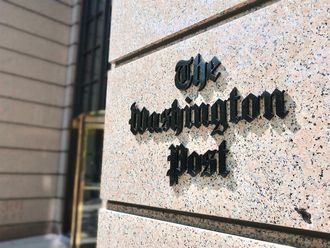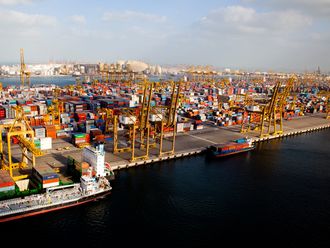Most Americans seem ready to consign the Iraq war to history. They've watched tank convoys leave Baghdad, and they've heard the president underscore his campaign promise to draw down US forces, leaving 50,000 in the country. Moreover, Iraq and the United States have agreed that the remaining US troops will be gone by December 2011.
But history suggests that unless the US is willing and able to remain committed to Iraq's security and prosperity — and Iraqis know it — the country is at risk of spiraling back into civil war. Civil conflicts like those we have seen in Iraq since the US-led invasion often recur when parties to a conflict fail to dedicate themselves to a peace process. Scholars call this the "commitment problem". If a state is without effective political institutions or professional armed forces, and if no warring faction has been able to achieve a decisive military victory, only an impartial outside power can enforce the belligerents' demobilisation and political power-sharing to prevent conflict from flaring up again. Although Iraq has made remarkable progress towards stability, the commitment problem persists. Since the January elections, Iraqi political leaders have been unable to form a government, and localised violence has reignited civilians' fears of becoming the target of attacks.
Unless America is effective in its new peacekeeping role, even moderate Iraqis could lose faith in demobilisation and disarmament and turn to violence. To prevent this, the US must demonstrate its commitment to peacekeeping by maintaining a substantial military presence in Iraq.
Credible commitment requires a large number of ground troops and a demonstrated readiness to use military force decisively and quickly. The US has at least a good beginning: 50,000 troops are probably adequate to the task.
Many stability operations have failed because of insufficient resources. A case in point is the United Nations' attempt to stabilise the island of Cyprus in 1964 by replacing British counterinsurgency forces with peacekeepers. Largely due to the shortage of combat troops, civilian personnel and technical expertise, UN forces were unable to prevent renewed civil conflict, the 1974 coup by the Cypriot National Guard or Turkey's invasion of Cyprus and the division of the island into Greek and Turkish sectors.
The violence escalated into ethnic cleansing when the UN, facing a financial crisis, reduced its forces by 70 per cent.
If America's remaining troop numbers are likely to be adequate, its timetable is not. The US must accept that building a sustainable peace requires years of meaningful involvement. In 1999, an international peacekeeping mission began in East Timor, after a long battle for independence. That mission is expected to continue beyond 2012. And during this effective peacekeeping and nation-building effort, the Australian-led International Stabilisation Force had to take quick action to suppress a 2006 crisis that erupted in East Timor's military — an argument for maintaining US troops in Iraq, close to the source of any uprising.
Strong commitment
While the US must demonstrate its strong commitment in Iraq, it must also make clear that its involvement is not unconditional. In general, an external power's leverage decreases as its stake in another country's security and prosperity increases. The deeper the US involvement in South Vietnam during the Vietnam War, the less influence the US had over the South Vietnamese government and its security forces. The reason is clear: South Vietnam recognised that because the US had put so much on the line to thwart communist expansion, the Americans would not abandon the country despite its dysfunctions.
However, insufficient and inconsistent involvement can be just as bad. Between 1980 and 1992, the US provided El Salvador assistance to fight the insurgents of the Farabundo Marti National Liberation Front. US security assistance was conditional on improvements in the human rights record of the Salvadoran security forces, and economic aid was contingent on El Salvador's adoption of democratic principles. But the presence of only 55 American advisors on the ground meant, among other problems, that the US conditions could not be enforced effectively.
Restrictive rules
Another key to the US maintaining its leverage in Iraq is avoiding narrow mandates and unnecessarily restrictive rules of engagement. In seeking to boost their legitimacy and consolidate political power, Iraqi leaders have on a number of occasions — such as during the negotiations that led to the 2008 security agreement — used nationalist rhetoric and taken tough positions to demonstrate to their constituents that they can stand up to the US. The Obama administration should not accept any restrictive terms that could cripple America's peacekeeping effort. .
Finally, the United States must undertake multidimensional peacekeeping to help Iraq reconstruct its economy. As scholars of civil war have found, a strong economy can help prevent outbreaks of violence in conflict-prone countries because opposing factions typically evaluate the economic cost of returning to violence. Experienced peacekeepers seek to not only establish security but also to facilitate economic reconstruction, social reform and democratization.
What happened in Malaya 60 years ago is evidence of that link. The Korean War caused an increased demand for Malaya's two principal commodities — natural rubber and tin — and for labour across the Malay peninsula. Insurgents in the country found it increasingly difficult to mobilise support among civilians.
Ending a civil war is a daunting task, and maintaining peace is even more difficult. But history has shown that the involvement of an impartial external power makes a lasting peace significantly more likely. There will be strong domestic pressures on the administration to withdraw all US troops by the end of 2011. President Obama has a consequential decision to make about renegotiating that deadline and resetting America's commitment to Iraq, a decision that will have a crucial impact on Iraq's future stability and America's strategic interests in the Gulf.
Irena L. Sargsyan is a research analyst at the Saban Center for Middle East Policy at the Brookings Institution.








